(Esther Li/Daily Bruin staff)
By Ashley Kenney, Sakshi Joglekar, Jason Zhu, Esther Li
June 5, 2022 at 8:47 p.m.
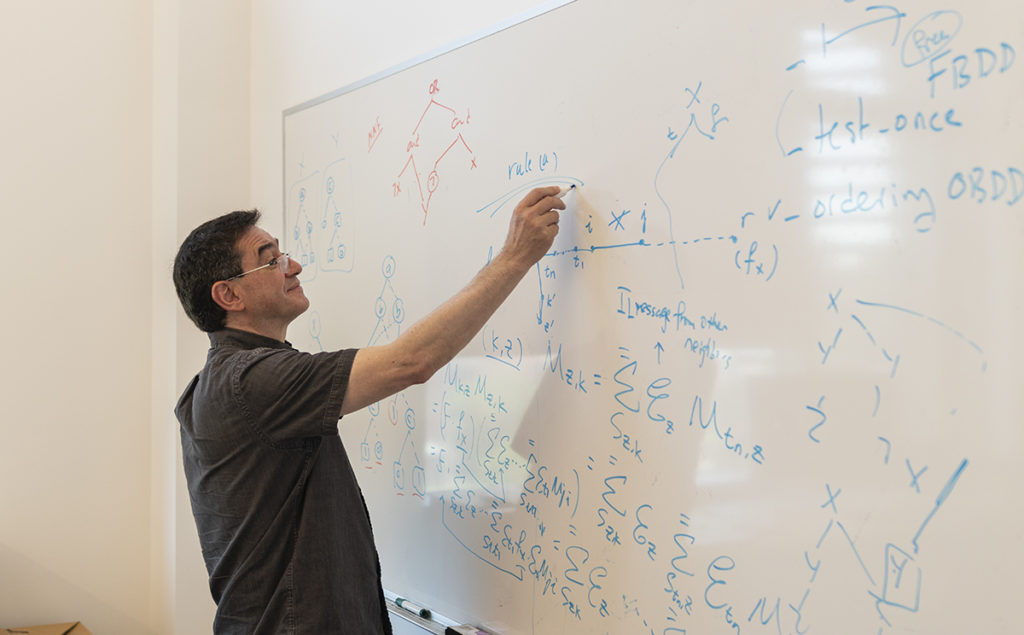
Adnan Darwiche, a professor of computer science, writes on a whiteboard. His courses and research area focus on artificial intelligence and automated reasoning, and he is the recipient of the Lockheed Martin Excellence in Teaching Award.
Darwiche has been editing lecture recordings into shorter YouTube tutorials and making many lessons publicly available.
“I hope students cherish this educational experience and remember all the lessons they learned from it,” he said in an emailed statement.
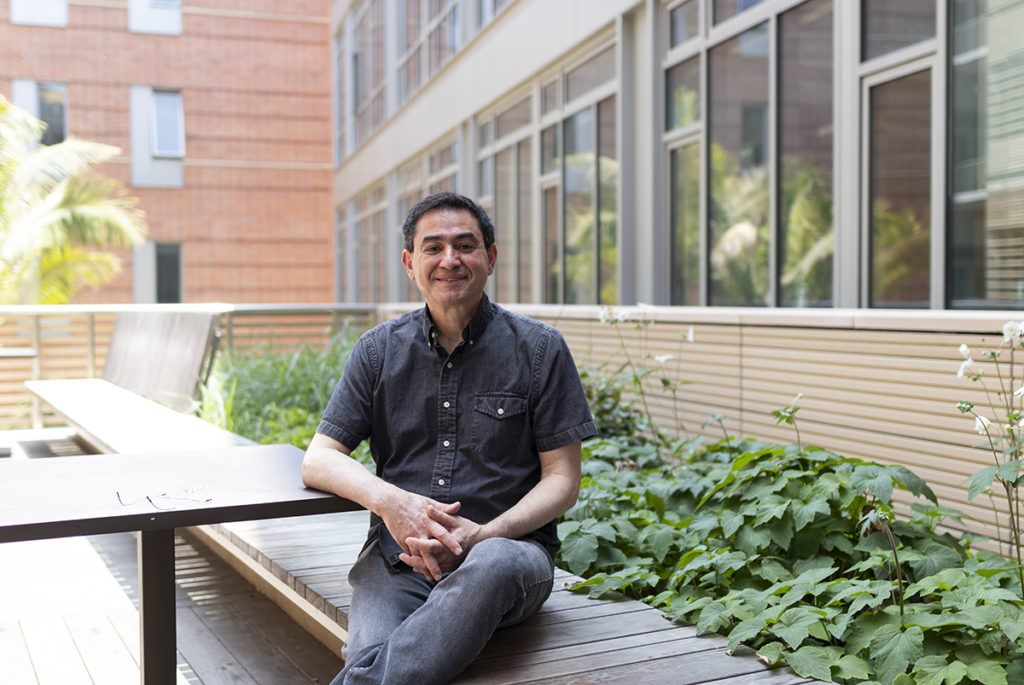
Darwiche sits at a table outside Engineering VI. He said he wished he took more time during his graduate school years.
“Make the most out of any educational experience,” Darwiche said in an email. “Life is a growth experience, and what students go through at UCLA is perhaps the biggest spurt of that growth.”
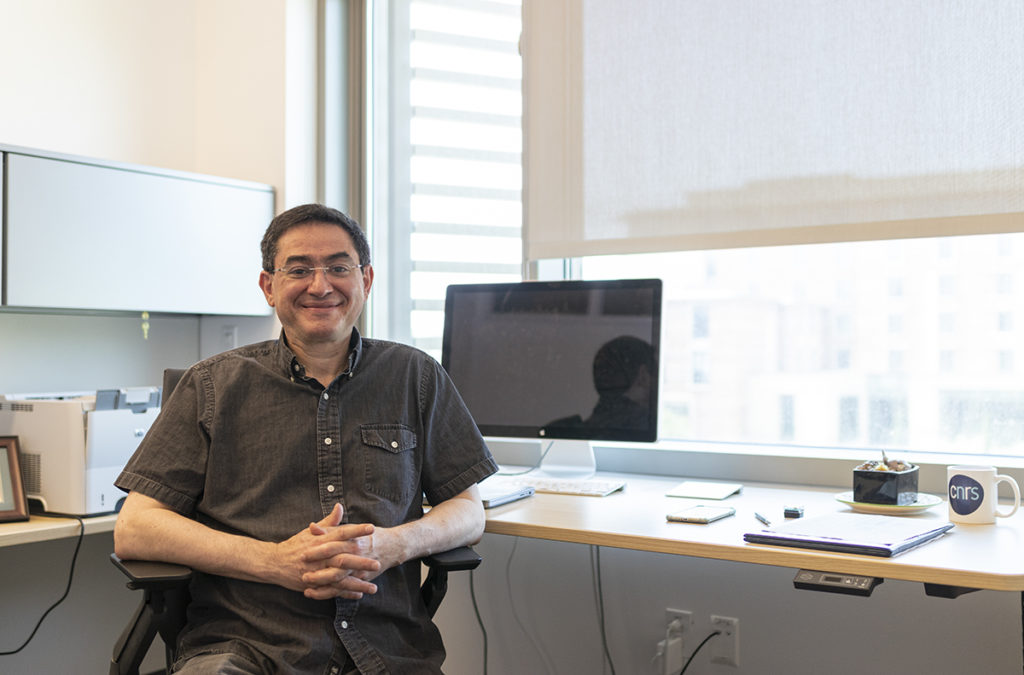
Darwiche, pictured here sitting at his desk, added that finding fulfillment takes time and requires patience.
“Seek happiness and satisfaction even if it means changing your job or career,” Darwiche said in an email. “Getting there is not a one-stop process.”
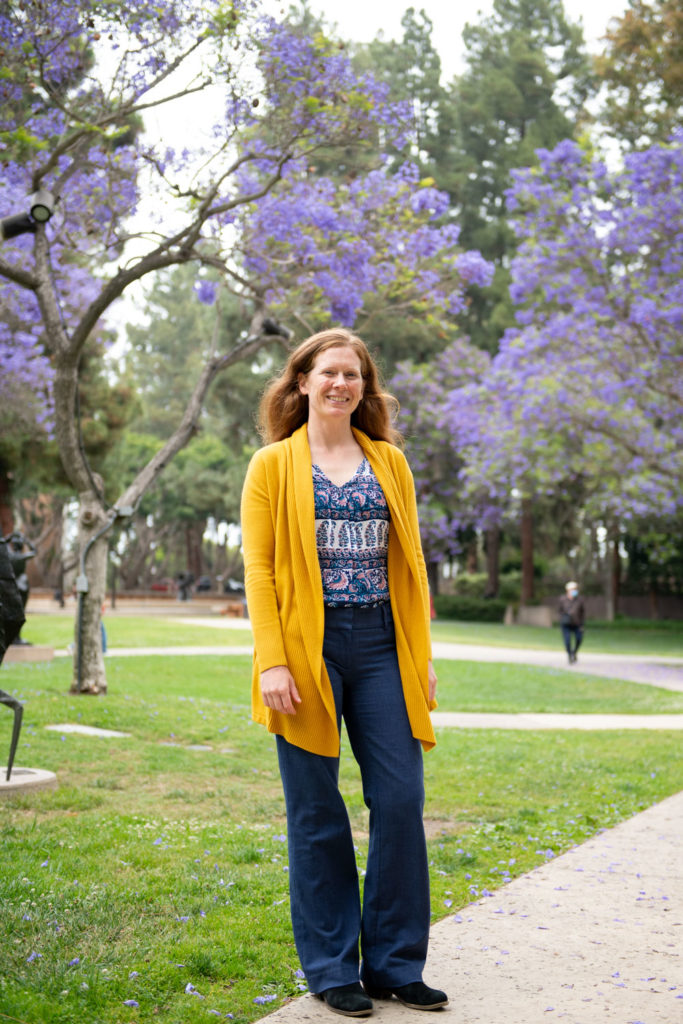
Michelle Rensel, a professor at the Institute for Society and Genetics, stands in the Franklin D. Murphy Sculpture Garden. Rensel has been teaching at UCLA since 2014. Currently, she teaches classes on medical genetics and ethics, chronic stress, physiology and social inequality, and a senior capstone on endocrine disruption in addition to coordinating and teaching within Cluster 71: “Biotechnology and Society.”
Rensel said she hopes her classes give students a skill set to approaching problems that they can use throughout their lives
“Think about the voices that maybe are left out or the perspectives that are not included,” Rensel said. “When you consider that, you can get a much more holistic and informed kind of picture.”
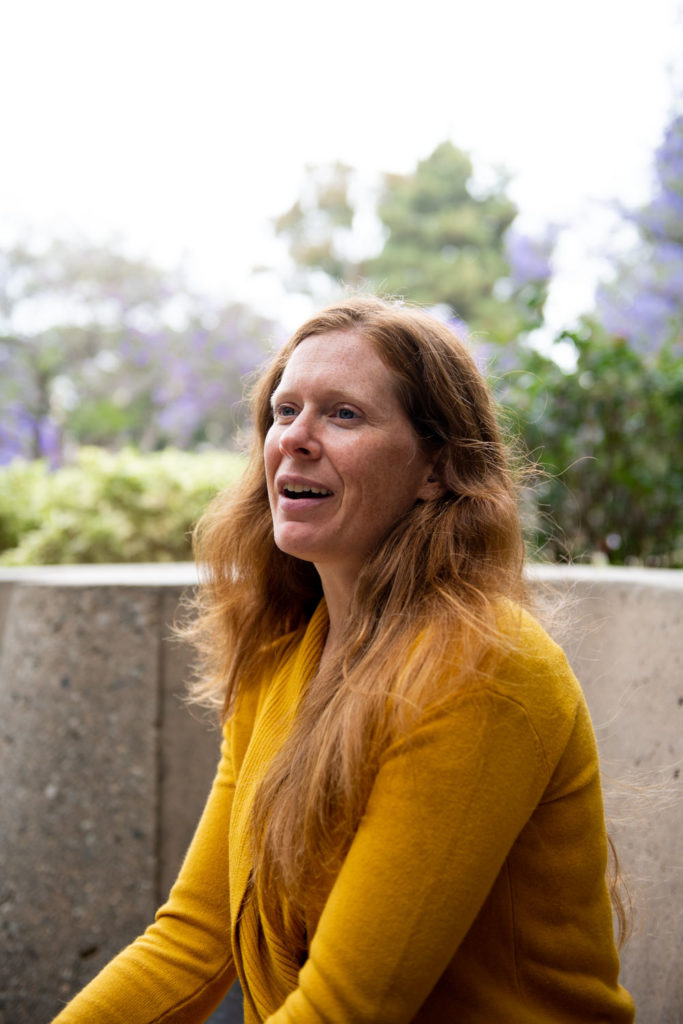
Rensel spoke about advice she has for UCLA students in general.
“Be open to new things and to new experiences. I think it’s easy to fall into the trap of thinking there’s only one kind of path forward, but there’s so much to be learned if you open up,” Rensel said. “It’s still uncomfortable to push yourself and to try new things, but it’s very, very rewarding.”
Additionally, Rensel mentioned the importance of making the most of one’s time on campus.
“Spend more time doing fun things and doing things you love and find joy in and not necessarily the things that you’re supposed to do, maybe as part of your career path and things like that,” Rensel said.
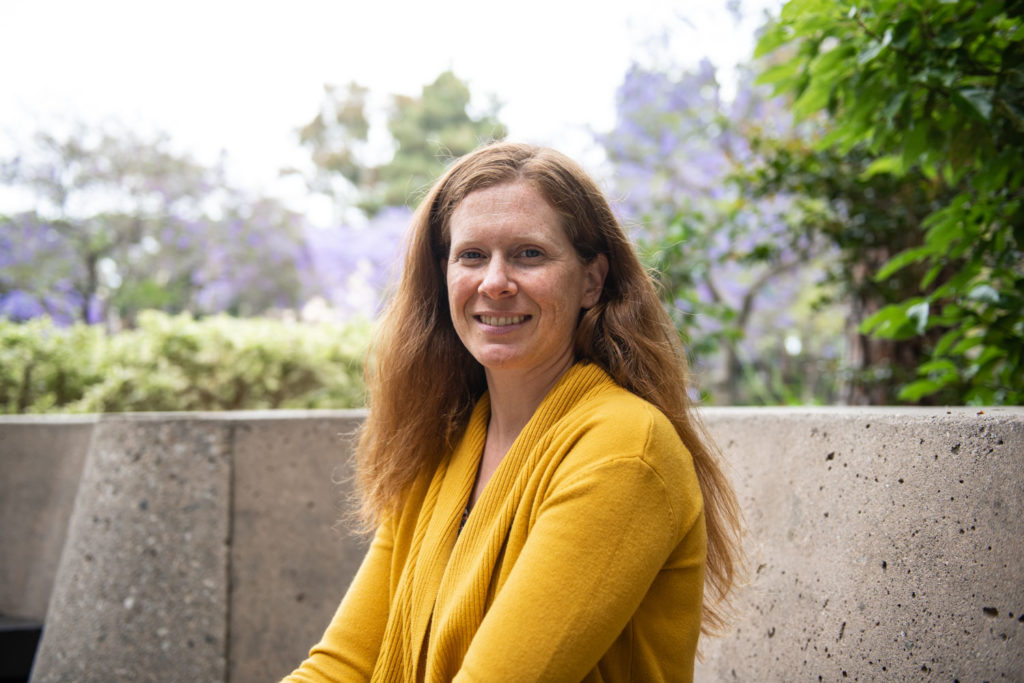
Rensel sits on a bench in the sculpture garden.
“Science is amazing and fun and cool but also needs to be just and inclusive and socially informed,” Rensel said. “Your generation and mine – we have the tools to do this. We just need to figure it out and keep doing it.”
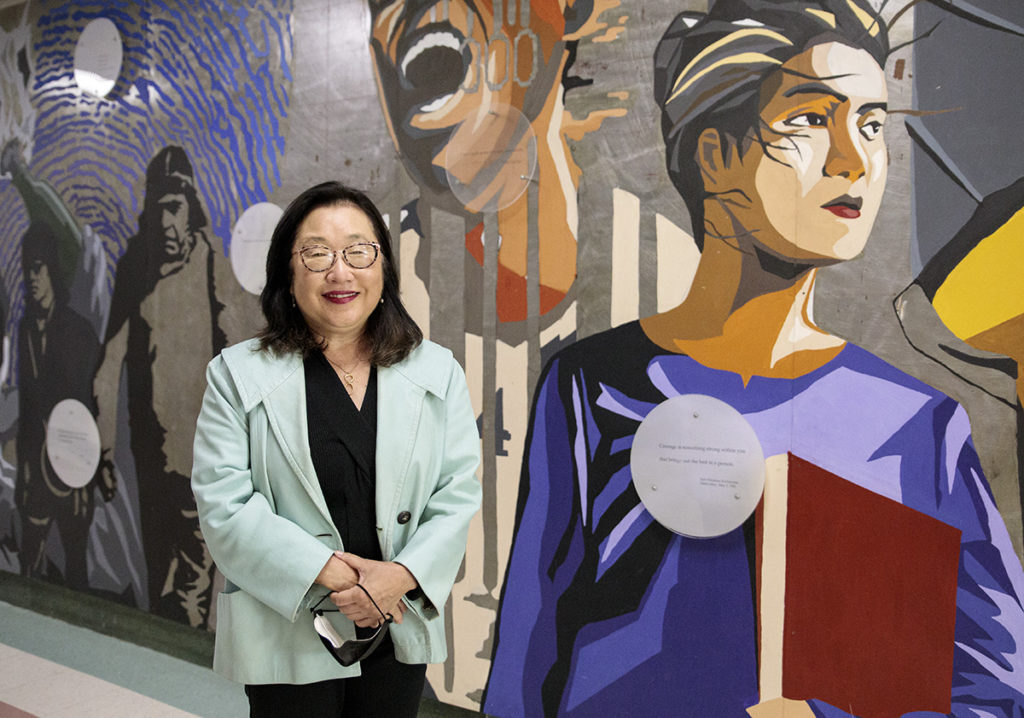
Professor Renee Tajima-Peña stands in front of a mural in the Asian American studies department. Tajima-Peña is both a professor of Asian American studies and the director of the Center for EthnoCommunications, where she teaches film production courses.
Through her classes, Tajima-Peña said, she wants students to learn the joy of filmmaking and to translate the world around them.
“Students are writing the first draft of history,” Tajima-Peña said. “It’s a moment in history, and they’re recording it. They’re recording how they’re experiencing it, how their loved ones are experiencing it.”
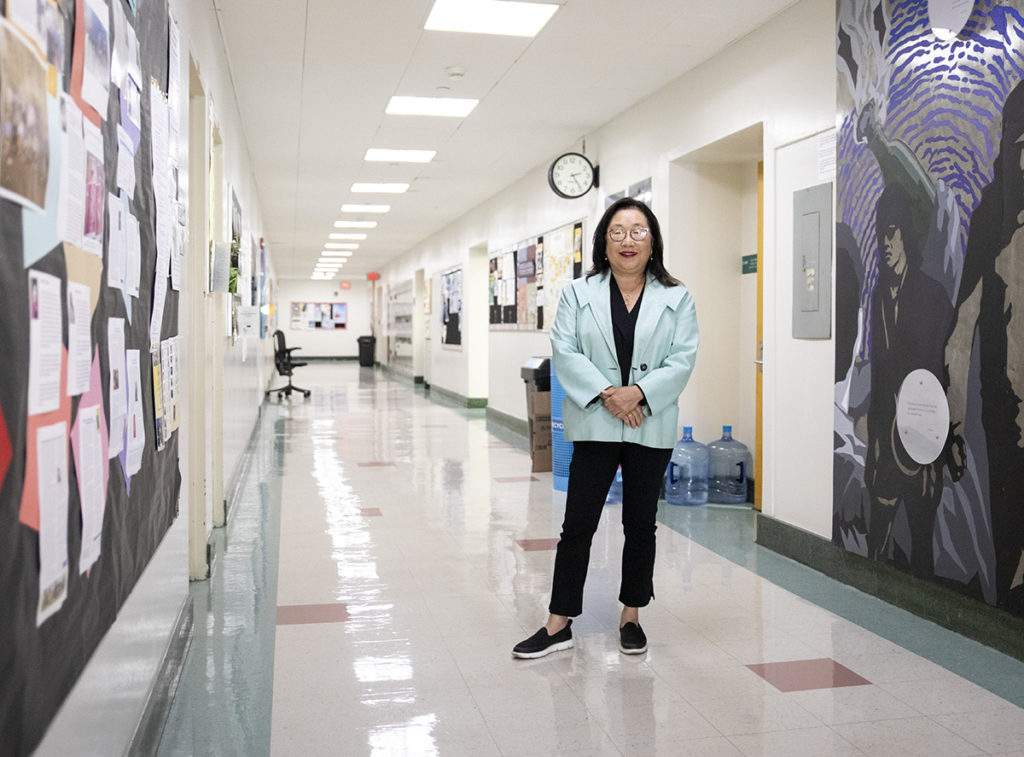
Tajima-Peña (pictured) said she used to advise students to follow their own path, but now with rising levels of student debt, she no longer does.
“I can’t really tell the students that anymore because they really have to do what’s necessary – what makes sense for them,” Tajima-Peña said.
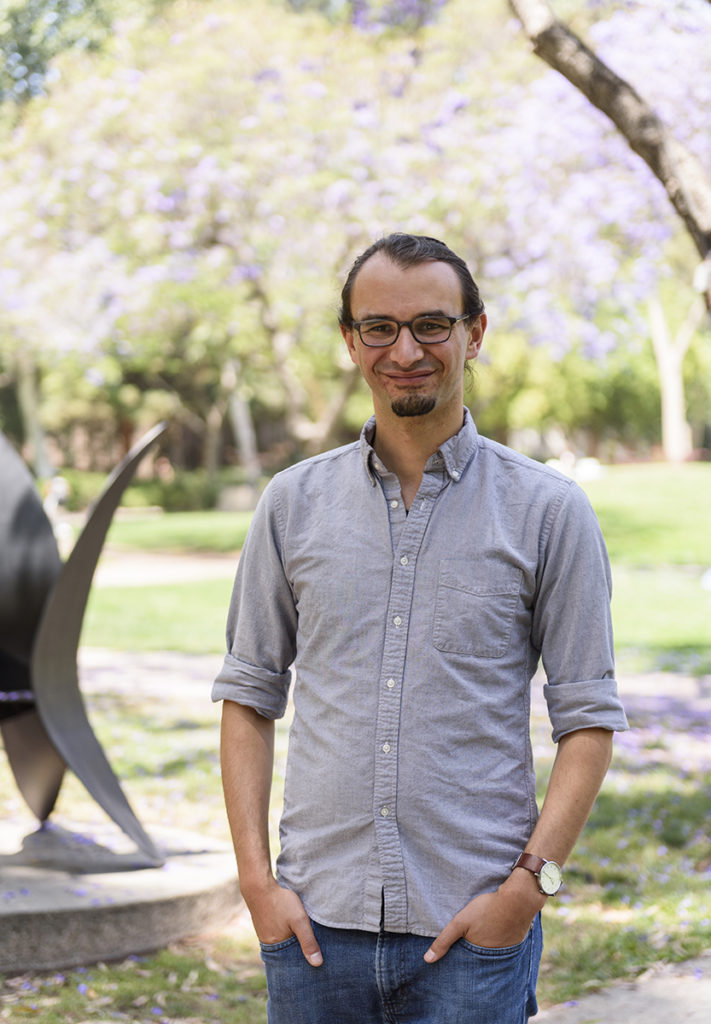
Professor Philip Chodrow stands in the sculpture garden. Chodrow teaches Mathematics 168: “Introduction to Networks,” which focuses on the mathematics of network science. However, he often teaches Program in Computing 16A and 16B, which are courses in Python programming and data science.
Chodrow said he encourages his students to associate what they learn about network science with real-world networks, such as social networks in the spread of information and misinformation or network of contacts in the spread of diseases.
“Small changes can lead to really interesting big differences in behaviors,” he said. “When we act on complex systems, the results of that action can be difficult to predict.”
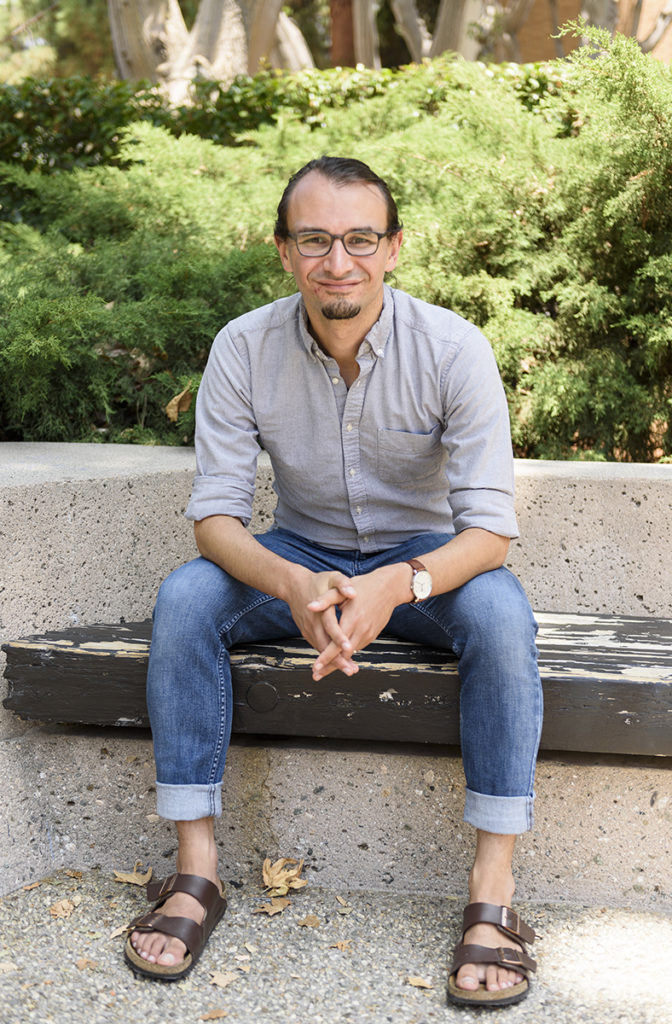
Chodrow leans forward on a bench. He added that students should understand the importance of self-reflection and self-definition.
“We all owe it to ourselves to reflect on our values and understand what our values are, understand what our values ask of us,” he said.
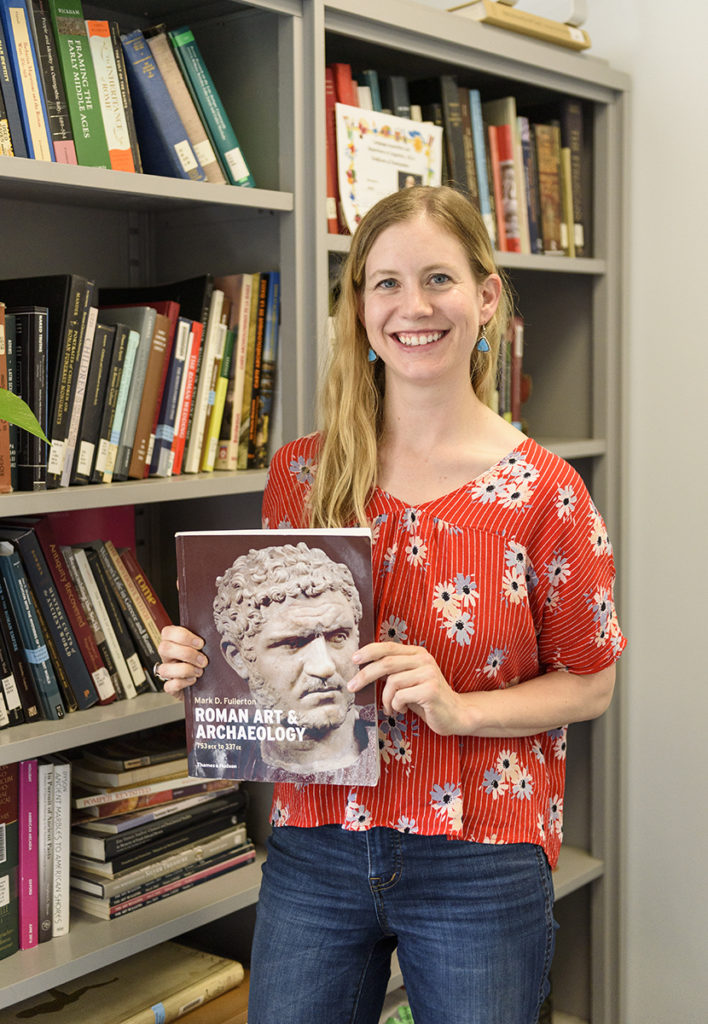
Professor Sarah Beckmann holds up the textbook for Classics 51B: “Art and Archaeology of Ancient Rome.” As a Roman archaeologist, she lectures on various aspects of Roman art and culture, from pre-Roman Etruscan culture to the Augustine era.
Beckmann said she focuses on developing her students’ ability to write and convey arguments in the context of Roman art and architecture.
“Think about how people interpret evidence and the way you can push that in different directions,” she added.
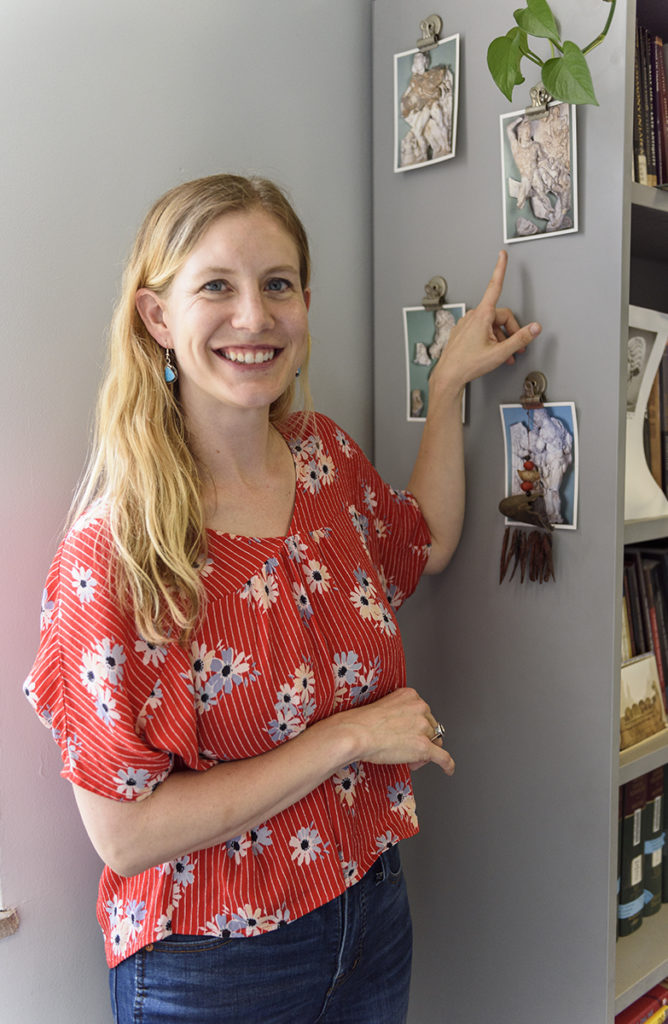
Beckmann points at a photograph of Roman art. She said that most of her students are senior undergraduate students, and she sees them as a thoughtful group of people who can transform society.
“I have faith in the next generation, … this generation of seniors who are graduating,” she said. “Remember the power you have both as an individual and as a collective body to bring about and enact necessary changes in our world.”

